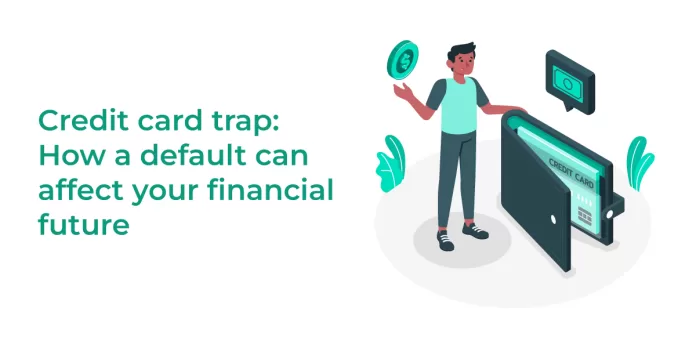Payment gateways in India have been evolving rapidly over the years, offering multiple options for completing transactions. Despite the variety of choices available, credit cards remain a popular payment method for many.
Whether it’s purchasing a favourite dress online or indulging in a meal at a top-rated restaurant, credit cards are often the preferred mode of payment. However, while credit cards offer convenience, they also come with risks, particularly if payments are missed regularly.
Credit card default
While many may think that missing credit card payments equate to defaulting, the reality is slightly different. Defaulting occurs when the Minimum Amount Due (MAD) is not paid for several consecutive months. Although credit card issuers typically notify users after six missed payments, it is the cardholder’s responsibility to settle the outstanding balance. Failure to do so can result in hefty interest charges and lead to being labelled as a defaulter.
Reasons you may become a credit card defaulter
- Missing Due Date: If you overlook the due date for credit card bill payment, you risk defaulting, even due to confusion over the correct date.
- Exceeding Credit Limit: Going over your credit limit and failing to repay can quickly lead to defaulting.
- Delaying Payments: Procrastinating on credit card bill payments can result in significant charges and ultimately make you a defaulter.
Consequences of credit card default:
- Legal Action: Defaulting may prompt legal action from the credit card issuer, potentially leading to fraud accusations.
- Credit Score Impact: Defaulting can lower your credit score, affecting your future credit opportunities.
- Increased Interest Rates: Failure to pay on time may result in high interest rates, up to 30-35%.
- Blocked Account: Consistent delinquency can lead to a blocked credit card account, hampering your credit score and access to credit.
- Asset Seizure: Banks may seize assets like savings accounts or property to settle outstanding balances in case of default.
To avoid these consequences, it’s crucial to pay credit card bills on time and manage spending within limits.
How to avoid the credit card trap
To avoid defaulting on your credit card, several proactive steps can be taken.
Firstly, setting up reminders through phone alerts or email notifications ensures timely payments. Secondly, utilising the auto-pay feature provided by credit card companies helps prevent payment delays by automating the process. It’s essential to pay your credit card bill promptly upon receiving the monthly statement, avoiding procrastination.
Meeting at least the Minimum Amount Due (MAD) before the due date is crucial to prevent defaulting. Additionally, if you’re unable to pay the full outstanding balance, consider exploring options with your issuer to convert it into manageable Credit Card EMIs.
By following these strategies, you can maintain a healthy credit card status and avoid potential defaulting issues.
Disclaimer: This blog has been written exclusively for educational purposes. The securities mentioned are only examples and not recommendations. It is based on several secondary sources on the internet and is subject to changes. Please consult an expert before making related decisions.


